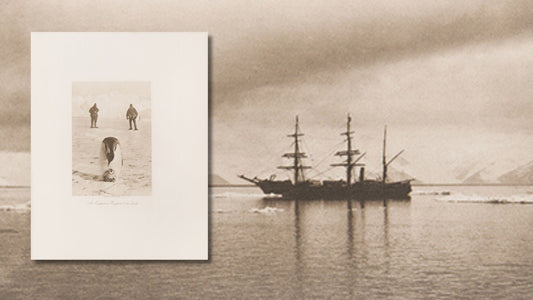Great Explorers: James Bruce


Who would you suppose to be the most renowned traveller of the eighteenth century? The Pacific voyager James Cook perhaps? Well, he probably was but in the 1770s, shortly after his return from exploring the Blue Nile, the honour fell to Scotsman James Bruce.
This red-headed, larger than life – at six feet four inches a giant for his times – imposing figure of a man, returned from Africa filled with outlandish tales of his experiences in a land entirely foreign to his fellow Europeans.
Bruce left the family home - Kinnaird House in Scotland - and its fantastic library for London in 1753, determined to win a job with the East India Company. That plan was put on hold when he met, and married, Adriana Allan whose attractions, by all accounts, he found more powerful than the mystical East. Tragically his wife died young and Bruce determined to travel Europe to conquer his grief. He studied Spanish and Portuguese and in 1757 sailed to Portugal where, for a year, he immersed himself in studying its society, art and science.
From there it was off around Europe, moving on to France, Germany, then Brussels. It was whilst in Holland that Bruce purchased a copy of Hiob Ludolf's History of Ethiopia, the seventeenth century work which incited his interest in the ancient Christian kingdom of Abysinnia – a fascination which would go on to define his life. Ludolf’s book whetted his appetite to know more about a region still virtually unknown to him and his contemporaries.
In 1758, following the news of his father’s death, Bruce was forced return from his travels to assume his responsibilities as laird of Kinnaird. There, he signed a contract to supply the Carron ironworks with coal from his mines at Kinnaird, the contract providing him with the capital and the leisure to travel the world.
Opportunity arose when, in 1763, Bruce was appointed British Consul in Algiers. This was a difficult position and he remained there for two years. Before long, however, the lure of the Nile proved irresistible and Bruce set off for Egypt and the start of his venture to find the river’s source.
The trip was extremely dangerous from the start, Bruce and his companions having to face being kidnapped by pirates in the Red Sea before they had even approached their goal. On reaching Abyssinia, however the group was fortunate enough to gain the support of the nations’s King and prime minister who were able to offer assistance in their travels.
Following many delays, Bruce finally reached the goal of his ambition, the source of the Blue Nile, in 1770. He mistakenly believed this to be the principal branch of the great river itself and viewed his mission as complete. After carefully noting the positions of the springs and the distinguishing features of the surrounding countryside, Bruce returned to Gondar and began to make arrangements for his journey home.
On finally returning to England in June 1774, his outlandish tales such as dining on live cattle and numerous dalliances with local women made him a great celebrity
He fell foul however of Dr. Johnson who had translated the Portuguese missionary Lobo’s narrative of Abyssinia and accused Bruce of fabricating his account. It wasn’t until many years later that the tale was verified and he was given the credit he deserved as the first and greatest of the modern continental explorers.
We are fortunate to have recently purchased a fine group of books from Bruce’s library at Kinnaird, where the Scottish weather for once came in handy in providing an ideal climate for preserving many of them in an exceptional state. The books include two of Captain Cooke’s Voyages and Twiss’s Travels through Portugal, with specimens of Portuguese verse translated by Bruce in manuscript in the margin– a testimony to his linguistic prowess. Most specially, we have managed to acquire the copy of Ludolf’s Ethiopia which inspired Bruce’s remarkable Nile quest. Bruce’s own account of the journey was published in London in 1790, of which we have a very handsome copy of the imposing 5-volume set.
Discover: Exploration & Travel




